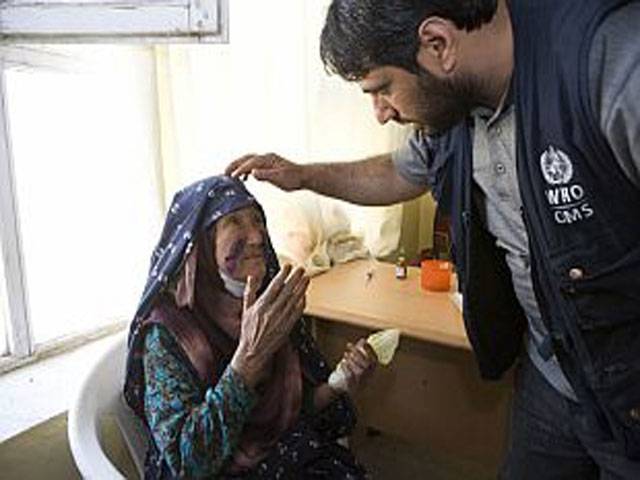GENEVA - People aged over 60 bear the brunt of disasters such as hurricanes and earthquakes, and governments must stop sidelining them before tragedy strikes, the United Nations said Monday.
“The older person is often invisible in our communities until they show up in the mortality figures after a disaster event,” said Margareta Wahlstroem, head of the UN Office for Disaster Risk Reduction.
Her office pointed to research showing that older people suffer disproportionately from disasters, not just in hard-hit developing countries but also in rich nations.
In 2005, 75 percent of those killed by Hurricane Katrina in the United States were over 60 - an age group that made up just 15 percent of the population of New Orleans.
And when Japan was hit by an earthquake and a tsunami in 2011, 56 percent of fatalities were aged 65 and over, despite comprising just 23 percent of the population.
“Demographic change means we are living in an ageing world,” Wahlstroem said in a statement.
The world is home to 868 million people aged over 60, representing 12 percent of the planet’s population.
By 2050, population growth forecasts suggest that there will be around two billion people aged over 60, matching the proportion of children aged under 15.
That demographic shift is going hand in hand with a rise in climate-related disasters.
“The world needs to become more acutely aware of how to protect older persons as the climate changes and the ageing population is exposed to more extreme events,” said Wahlstroem.
“For instance, thousands of people die every year in heat waves and older persons living in poverty are among the most vulnerable. Inclusion of their needs and social protection measures are vital to the success of disaster management in the years ahead,” she added.
Toby Porter, head of global charity HelpAge International, said older people are less likely to be able to flee.
“This is compounded by the lack of essential medications for older people, such as to treat diabetes, being available after disasters. The mental fallout from disasters is huge. Older women and men are ready to help others but are often too proud to help themselves,” Porter said.
“To turn this around, governments and disaster management agencies need to address older people’s vulnerabilities and tap into the years of experience, knowledge and skills that they bring to help reduce the effects of disasters,” he added.
Friday, April 19, 2024
Disasters hit over-60s hardest: UN

9:58 PM | April 18, 2024
King Charles's cancer ‘eating him alive,' monarch unable to perform duties: Insider
1:02 AM | April 19, 2024
Mehwish Hayat says she would like to work with Aamir Khan
9:59 PM | April 18, 2024
What caused record-breaking rainfall in UAE?
9:58 PM | April 18, 2024
Donald Trump discusses Ukraine, Middle East, NATO with Polish President Duda
9:57 PM | April 18, 2024
'That'll be awesome,' Rohit Sharma on idea of Pakistan vs India Test series
9:17 PM | April 18, 2024
Hepatitis Challenge
April 18, 2024
IMF Predictions
April 18, 2024
Wheat War
April 18, 2024
Rail Revival
April 17, 2024
Addressing Climate Change
April 17, 2024
Justice denied
April 18, 2024
AI dilemmas unveiled
April 18, 2024
Tax tangle
April 18, 2024
Workforce inequality
April 17, 2024
New partnerships
April 17, 2024
ePaper - Nawaiwaqt
Advertisement
Nawaiwaqt Group | Copyright © 2024





